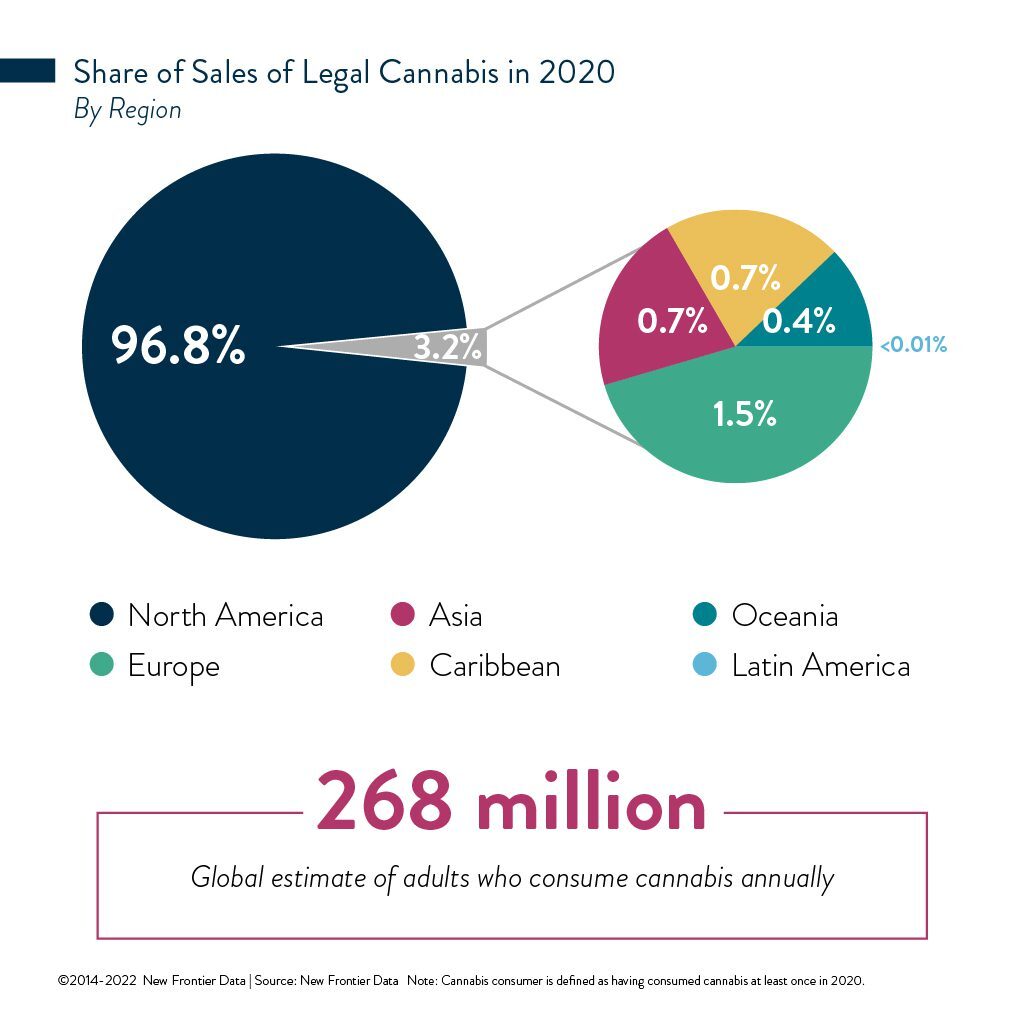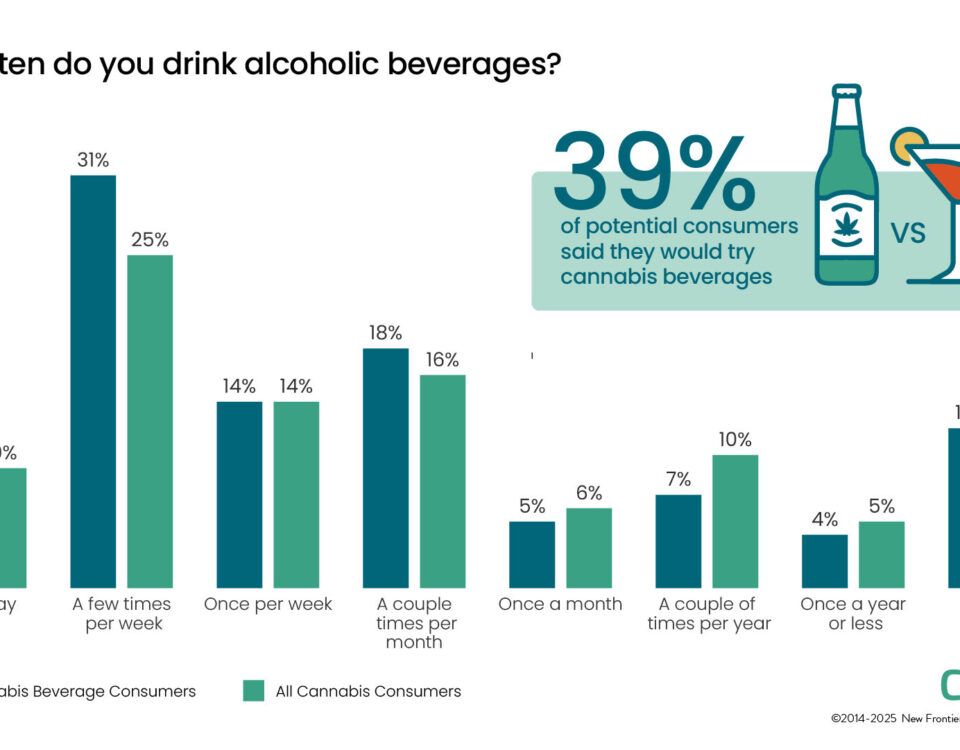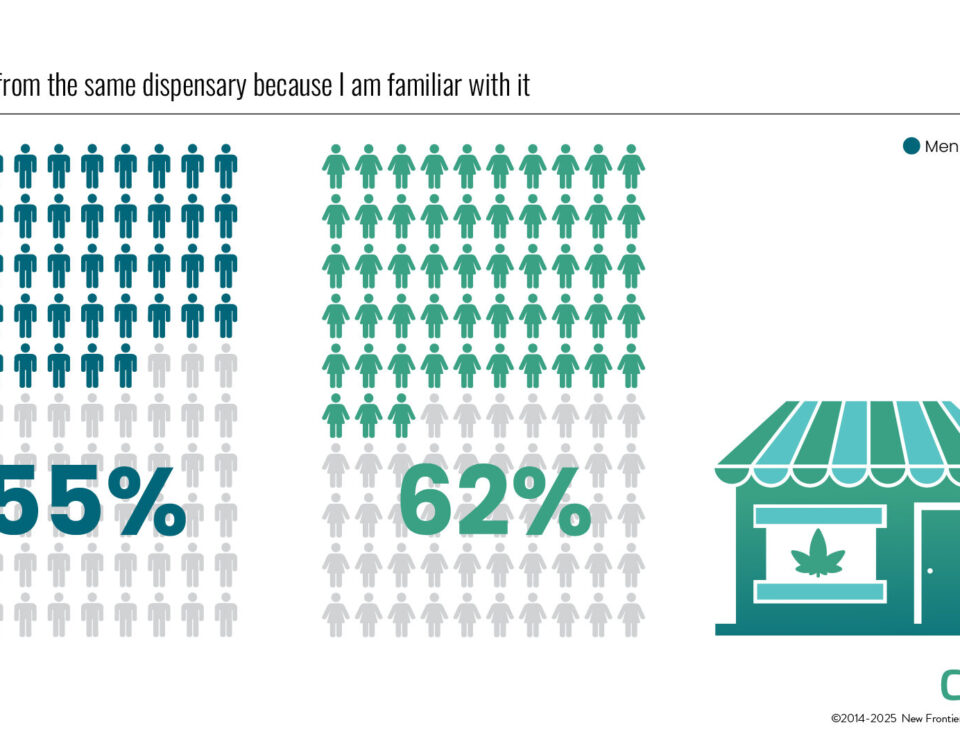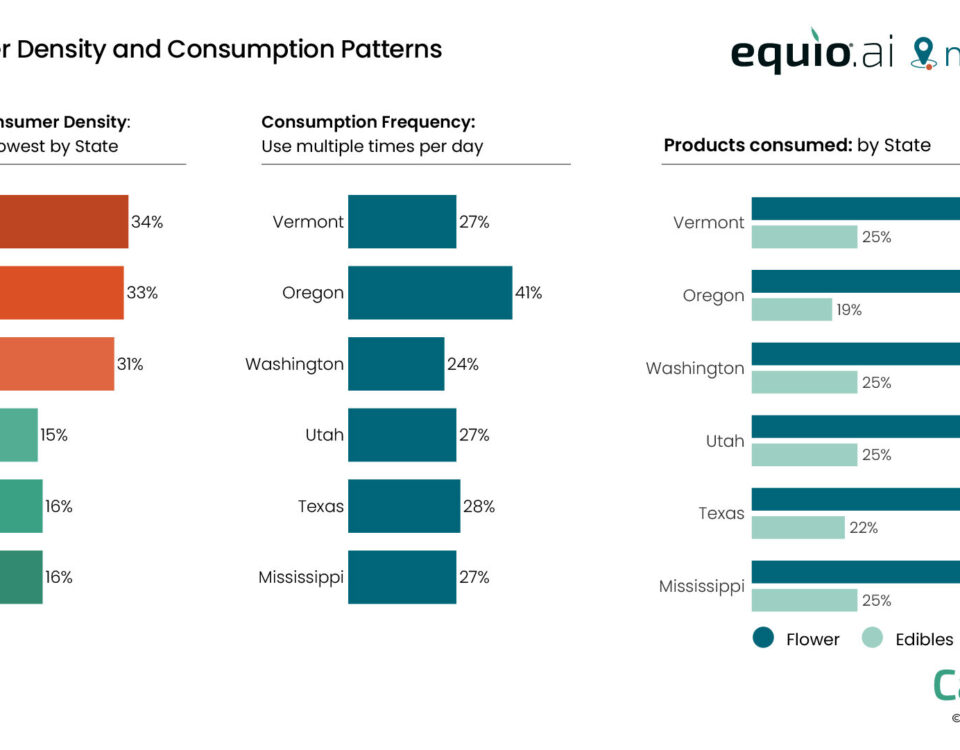Cannabis Professionals Offer Cases to Promote SDGs at United Nations

Momentum for Federal Legalization of Cannabis Shifts Toward Incrementalism
May 10, 2022
New Frontier Data and Treez Partner to Empower Cannabis Retailers in a Hyper-Growth Market
May 19, 2022By J.J. McCoy, Senior Managing Editor, New Frontier Data
No cannabis is allowed at the United Nations (UN), but the room for Regenerative Cannabis Live this month in New York City was abuzz with optimism and energy deferred after more than two years of COVID-19 restrictions.
Notable for the setting given both the international peace-and-security organization’s former 59-year ban of marijuana (under Schedule IV of the 1961 Single Convention on Narcotic Drugs), and being among the first legal cannabis industry events convened in-person since New York’s pandemic masking and social-gathering restrictions were eased, the one-day program — themed “Sustainable Development for and by the Cannabis & Hemp Industry” — featured six panel discussions along with keynote speeches from high-level industry stakeholders.
Sustainability and Responsibility
“The market is in the room,” said Geoff Trotter, Regennabis co-founder and Chief Growth Officer, noting the historic gathering of dozens of cannabis experts and stakeholders in the UN setting. Cannabis meets all points of the UN 2030 Sustainable Development Agenda, a fact that advocates stressed to encourage government authorities to legalize, regulate, and research the plant worldwide.
The prepared talks were tailored around authentic, international, action-oriented discussions about each recreational/adult-use cannabis, the medical/health & wellness sectors, and industrial hemp, with focuses applied toward adherence to the UN’s 17 Sustainable Development Goals (SDGs), featuring environmental, social, and governance (ESG) tracks.
Giadha A. DeCarcer, New Frontier Data’s Founder and Executive Chair, outlined the “triple bottom line” underscoring a company’s adopting seemingly non-financial factors as part of its analysis process for identifying material risks and growth opportunities.
In economic terms, the triple bottom line (TBL) asserts that companies should prioritize social and environmental concerns on par with profits, expanding that traditional bottom line to include people, and the planet, for a company to do some good even as it does well.
“At this stage in the industry’s growth, the cannabis industry has an opportunity, if not responsibility, unlike any other sector, to get things right from the start,” she said in a keynote address titled “A New Paradigm Emerging: The Next Frontier”.
By stressing ESG imperatives for a company’s governance and business culture, they are reflected in everything from the company’s leadership and internal controls to its executive pay, audits, and shareholder rights. The social criteria extend to the relationships with employees, partners, customers, and the community in which the company operates.
Doing Good to Do Well
Among the pragmatic reasons to consider ESG as a strategic imperative are the goals for risk mitigation, social license to operate, and market acceptance, along with competitive advantage, talent recruitment and retention, and overall brand value. DeCarcer noted that since 2000, more than 20 countries have reduced their annual global greenhouse gas emissions while growing their economies.
In recent years, investors have shown a broader inclination to scrutinize their personal values along with wherever they were directing their money. Subsequently, brokerage firms and mutual fund companies have begun offering exchange-traded funds (ETFs) and other financial products that follow ESG criteria.
As considered in New Frontier Data’s latest release (in cooperation with Regennabis, an ESG consulting firm), ESG + Cannabis: The Promise and Path to a New Paradigm, while there is constant discussion and debate around what is included in this ESG “thing” – i.e., sustainability, corporate social responsibility (CSR), and the triple bottom line, each with their own interpretations – what the concerns all have in common are the foundational elements supporting them: Namely, strategies and tactics which a business deploys to achieve strategic, operational, and financial goals while minimizing environmental impacts, promoting social integrity, and responsibly conducting its affairs.
Corporate Call to Action
“The cannabis industry is in a unique position of knowing what it can do to build a socially, environmentally, and economically sustainable industry as the foundation is being laid for a global cannabis economy,” said John Kagia, New Frontier Data’s Chief Knowledge Officer.
“With North America’s legal markets leading the world in industry growth, the decisions made by operators in the U.S. and Canada will greatly influence how stakeholders globally integrate ESG into their operational framework, and how they align their markets to the United Nations’ 17 Sustainable Development Goals (SDGs),” he continued. “New Frontier Data’s ESG report, and the recent Regenerative Cannabis Live event held at the United Nations in New York, addressed why this is so important, and how stakeholders can integrate those themes into their work. We hope that this is just the beginning of a comprehensive, sustained, and industry-wide reorientation toward ESG, even as the seeds for a global industry are being planted.”
In summarizing a panel discussion, “Regenerating Society”, about restorative justice and the social impact of diversity, equity, and inclusion throughout the industry, Kagia recalled President John F. Kennedy’s pledge 60 years ago to reach the Moon.
“The industry must address these issues,” Kagia said. “As a previous generation noted in rising to the challenge: ‘We must do these things not because they are easy, but because they are hard; because that goal will serve to organize and measure the best of our energies and skills, because that challenge is one that we are willing to accept, one we are unwilling to postpone, and one which we intend to win.’”




